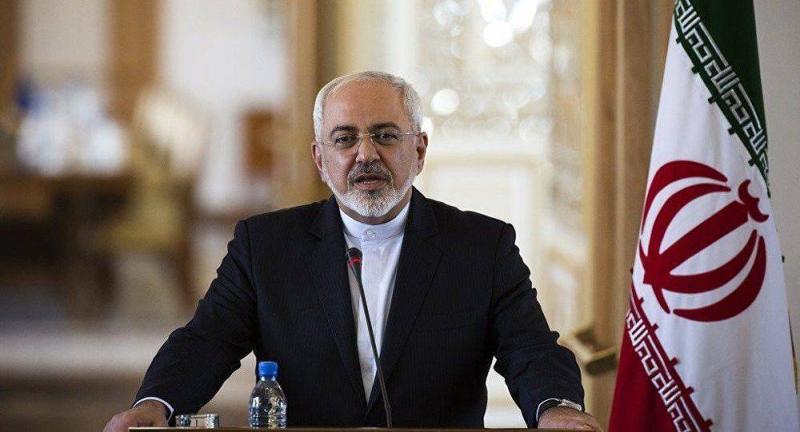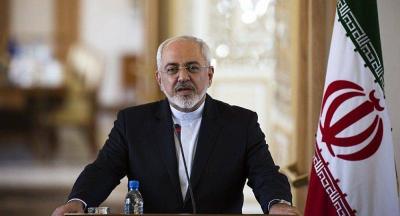Iranian Foreign Minister Mohammad Javad Zarif renewed his country’s condition for returning to the nuclear agreement, stating: "The United States cannot join the nuclear agreement before providing guarantees and fully lifting sanctions, as it is the one that violated the law."
During a televised interview today, Zarif pointed out that there are commitments, saying: "We will proceed with our commitments; we have democracy and implement laws enacted by the parliament." He emphasized, "We will uphold our rights and have started taking some measures, and the parliament has granted us the right to do so. In America, the president can use the veto to reject any decision, but we in Iran will not do that." He confirmed that his country "has reduced its commitments while at the same time is capable of returning quickly," noting that the upcoming discussions will not concern any changes to the nuclear agreement.
Regarding the visit of International Atomic Energy Agency (IAEA) Director Rafael Grossi, Zarif stated, "We have done our job to the fullest," adding: "We will discuss all important matters with Mr. Grossi and will not allow the removal of the cameras that are at our centers. We will take further steps, and these steps are being discussed within the agency, and we will also discuss technical issues with him." He considered that "Grossi represents all member states, and we respect the agency's role while also wanting to avoid problems in implementation." However, "it is the duty of the IAEA to act with justice and to respect the confidentiality of member state information."
Zarif viewed that U.S. policies have seen no change and that the new American president will not offer more than claims. He added: "The problem is that the U.S. has accustomed itself to imposing sanctions, but this policy is ineffective against Iran." Zarif condemned the discussion about activating the snapback mechanism for sanctions, stating: "This contradicts Resolution 2231; the snapback mechanism is rejected and does not exist in the Joint Comprehensive Plan of Action (JCPOA) at all." He noted that Iran was supposed to be allowed to buy and sell weapons under the agreement, adding that the U.S. should recognize that it is rejected by 110 countries, indicating the end of a hegemonic policy.
Regarding the issue of compensating Iran for the losses incurred due to U.S. imposed sanctions, Zarif affirmed, "This topic will be at the core of discussions after the U.S. returns to the nuclear agreement," stating: "We lost a trillion dollars directly and indirectly because of the sanctions; therefore, Iran will demand compensation practically."
Zarif considered that the European side is trying to evade and wants to go beyond the agreement, stressing: "There will be no new negotiations regarding the nuclear agreement." He also addressed "Israel" and its expansion of the Dimona reactor (the only nuclear facility in the region for producing nuclear bombs) without any concern from the European side. He pointed out that China and Russia are friendly countries, and that during Trump's administration, the U.S. imposed sanctions on many of their companies, clarifying that over 120 Chinese and Russian individuals and companies currently face sanctions.




